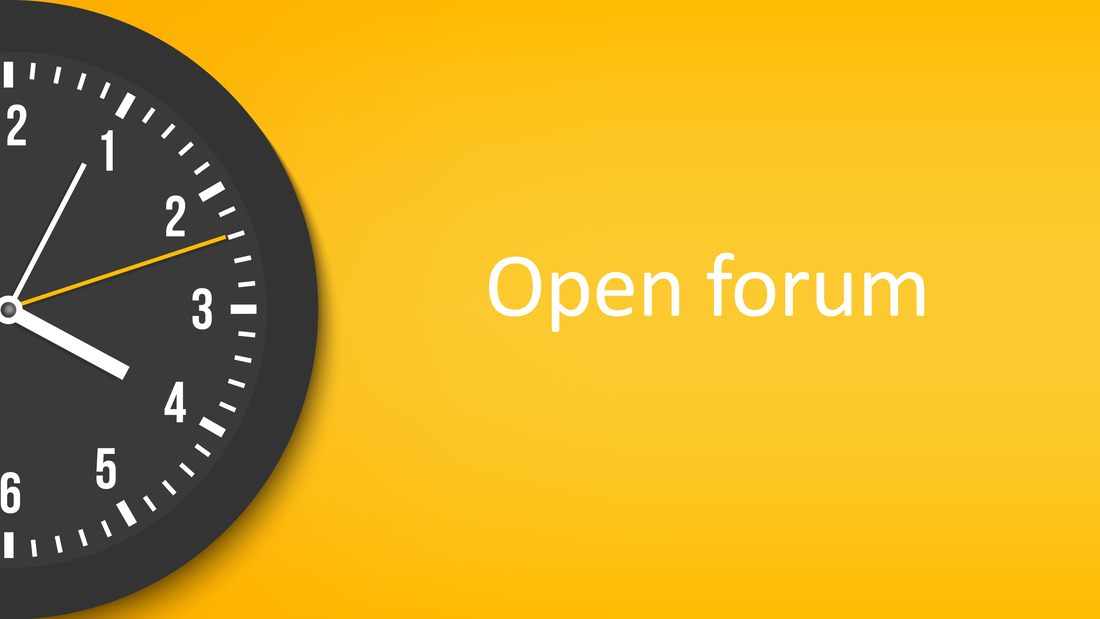|
Questions of where we came from, why various things happened or evolved as they did, and what we can learn from them to guide us as we live our lives fascinate many people—me included. From neo-lithic henges and stone circles, to the development of more recent industrial-scale enablers (notably, the wheel, the printing press, manufactories, the motor car and the Internet), man has long been fascinated with history, innovation and possibility. When we ponder historical developments and innovations such as the examples noted here—and other foundational things like language, writing, mathematics, ethics and civics—we gain insight to apply in our daily lives or use as a springboard to try to make new discoveries. This maxim applies personally, in family and social groups, and more broadly in society—and if we ignore it, it may be to our peril. The idea of learning from those who have gone before us is applicable in organisations too. How else would individuals and teams know what to do? This is what learning and development departments organise, and why professional development programmes exist. In the realm of boards and boardwork, relevant questions include three I have been asked most often over the past two decades: What is corporate governance; what is the role of the board; and, how should governance be practiced? That these questions are asked so often suggests directors (at a population level) lack the knowledge needed to be effective. Helping directors and boards govern with impact is a calling for me, so when Mark Banicevich invited me to explore the history of corporate governance—well, make a fleeting visit across a few high points in the Western context—I jumped at the chance. Hopefully, the commentary is helpful. Do let me know whether you agree or disagree with the various perspectives, and why, because I’m no Yoda (use the comment section below, or contact me directly). Life is a learning journey for me as well!
0 Comments
Boards, and an oft-mentioned but mysterious concept—governance—are topical. Daily, it seems, these terms feature in our newspapers and on social media, usually because something has gone wrong. And when it does, the chattering class is not slow to react. Typically, the targets of their comments are the board and management of the organisation. That seemingly strong organisations suffer significant missteps—or even, fail outright—on a fairly regular basis is worrisome; the societal and economic consequences are not insignificant. What can be done? Recently, the inimitable Mark Banicevich invited me to discuss boardroom success and failure, and to offer guidance that boards wanting to lift their game may wish to consider. Hopefully, our discussion is helpful and enlightening. Regardless, I welcome questions and comments, either here or send me an email. This is my second conversation with Mark (the third will be published in May). If you missed the first, you can access it here: Governance around the world. Recently, I announced the findings of empirical research conducted over an eight year period. The aim of that research was to discover how many boards are fully aligned in relation to corporate purpose. The findings were staggering: five per cent of the participating boards—yes, one in twenty—were completely aligned in relation to corporate purpose. When asked, every director and executive had an answer, but only five boards (out of one hundred and three, to date) had one answer. How can any board do its job (make informed decisions, and provide effective steerage and guidance) if it has not first agreed on an objective (purpose) to work towards? Compare this situation with that of a plant. The example in the picture—echium vulgare, or, more commonly, viper's bugloss or blueweed—is as good as any. Echium vulgare, a native of Europe, is an introduced species in parts of north-eastern North America, south-eastern South America, and New Zealand. The plant is toxic to horses and cattle, but the bright blue flowers are very attractive to bees. And, despite the toxins in the plant, honey produced from the nectar is very tasty indeed! "So what?" you might ask. To compare a board and a plant seems a little odd. Yes, maybe, but please allow me to explain. E. vulgare, like all other plants, has a single purpose, which is to grow and reproduce. All the plant's energies are dedicated to this single goal, using the resources available to it. Nothing more, and nothing less. In contrast, many companies operate without an overarching and enduring goal, as the research mentioned above shows (save to make a profit). And that begs another question: how can any organisation realise its full potential without first establishing a clearly defined and achievable goal? 'Purpose' has become a hot topic in board, shareholder and stakeholder circles. Some have interpreted purpose to mean mission and vision: an overarching goal the company intends to achieve. Others have a different understanding—one that positions the company as a servant of society, as the question below illustrates: How can a company not be in the business of improving human health and making the world a better place? This question, posed by a US-based leadership consultant, positions purpose as a catalyst to influence or resolve an external societal or environmental situation. In effect, the underlying expectation is that the company prioritises something external and, most probably, well beyond the company's means and ability to influence, much less achieve. The difference between the two understandings is stark, as are the implications. Readers will, probably, gravitate towards one or other, and some may hold such strong views as to be offended by 'the other one'. And that is okay; shareholders and the board can strive to achieve whatever they want—such is their prerogative. What matters is that every board takes responsibility for answering the question, of why the company it is charged with governing exists. Essentially, "For what purpose?" Without this, the company will lack a North Star, and efforts to create a meaningful strategy, let alone allocate resources well and achieve high levels of performance, will be fraught. But, if purpose is clearly stated, and agreed and understood by every director and all key staff, the company will not only attain membership of a most desirable club—the Five Percent Club—the board will have established a robust foundation upon which a coherent strategy can be developed, resources allocated, decisions made, and the full potential of the company pursued. And that, I think, is a good thing.
Do you have a question about governing with impact, or driving organisational performance?22/8/2023 One of the great joys of being an independent advisor is the opportunity to spend time with people from a wide range of backgrounds; business and social experiences; walks of life; and, in my case, countries and cultures. The depth and breadth of humanity never ceases to amaze me. Paradoxically, a common thread runs amongst the diversity: people intent on improving organisational effectiveness and making a difference spend lots of time asking questions, lots of questions. When a question is asked from the floor after a keynote talk, during an advisory engagement or professional development workshop, or as part of a confidential discussion or informal chat, something mysterious happens: Both parties learn! This should come as no surprise, for no one has all the answers—although some people behave as if they do. Recently, I posed several questions board directors may wish to consider. The response to that musing has been overwhelming, so I thought an open invitation might be in order. If you have a question about any aspect of corporate governance, strategic management, board craft or the challenge of governing with impact—either personally or on behalf of a board you serve on—please ask and I will gladly respond. Use the comment link here or, if you prefer, send an email. Let's learn together!
The role of company director has become quite visible over the past couple of decades. From hardly rating a mention in the popular press or polite society fifty years ago, public awareness of boards and directors has blossomed in recent times. Questionable practices and failures of various kinds have seen boards become a source of board fascination and disdain—targets of criticism in the eyes of the business media, political class, regulators and, increasingly, the wider public. Activists, institutional investors, proxy advisors, and other stakeholders and supernumeraries have sought to exert influence and press various claims too, on both company priorities and board decision making (think: ESG, disclosures, DEI, climate change, net zero, and more besides). While some boards have responded well to changing circumstances, others have battened down the hatches. Defensiveness can be an important response at times, but it is not a sustainable tactic given the mandate to govern (provide appropriate steerage and guidance to achieve a specified goal). If directors are to steer and guide effectively, they need to consider information, ask questions to check progress and elicit missing information and, having debated various options, make decisions. This is crucial, for the questions directors ask may be the difference between effectiveness and ineffectiveness in role. The following list provides a useful starting point for boards intent on governing with impact:
Do you agree or disagree—I welcome your thoughts on this! Also, what other questions have you found useful?
I have spent four days in Australia this week, meeting with directors, advisors and a couple of institutional leaders in two state capitals. While the weather has been great, a few storm clouds [metaphorically, on the governance horizon] were apparent. Whether these are serious problems, or just differences of opinion, they strike me as being worthy of discussion. I’d be delighted if you would ponder the following situations, and share your thoughts to help me understand why boards, more often than not, erode value.
These examples demonstrate, to me anyway, that questions of what corporate governance is, the role of the board and how governance might be practiced are far from resolved. Directors and their advisors seem to be their own worst enemies. Flawed understandings of what governance is (the provision of steerage and guidance, to achieve an agreed strategic aim), and how it might be practiced, remain serious barriers to boards fulfilling their mandate, which is to ensure the enduring performance of the company. Why do some directors’ institutes, advisory and consulting firms, regulators, academics, and media commentators continue to discuss “best practice” and promote various matters that have little if any direct impact on achieving sustainably high levels of organisational performance? Surely attention needs to be on helping directors and boards do their job well, n’cest ce-pas? I have a few ideas to crack this problem, but I’m keen to hear what you think.
I’ve been holidaying in Scotland this week, the first of two in the Highlands after whistle-stop visits to Edinburgh and Glasgow. I prefer the countryside over cities, the wide-open spaces and the scenery. The vistas in Scotland are especially magnificent, especially if the weather is fine, which it has been this week. Today, I saw the Jacobite Steam Train in action as it crossed the famous Glenfinnian Viaduct—well almost in action, for the chance of a wayward spark starting a fire in the adjacent bracken has limited this famous tourist experience to a push-me pull-you configuration with a heritage diesel locomotive bringing up the rear. The question, in my mind and the minds of others witnessing the viaduct crossing, was, “Which locomotive is actually doing all the work?” Or, more plainly, what is driving what? From the picture, the answer is not immediately obvious. However, the very presence of the diesel locomotive provides an important clue. And so it was. Today, the Jacobite Steam Train excursion was, in fact, the Jacobite Steam Train experience, powered by diesel. The visual imagery provides a powerful analogy for something else I saw today; a press release issued by the Institute of Directors entitled, “ESG must not neglect governance!” The headline implies that governance (from the Greek, meaning to steer, to guide, to pilot) is little more than a component of ESG (a means of measuring corporate performance). This, despite governance being the term that describes the work of the board of directors (the means by which companies are directed and controlled). But, reading on, the situation is not quite as it first seemed. Dr. Roger Barker, head of the policy unit, acknowledged the importance of boards taking non-financial (so-called, ESG) factors into account when making decisions. But he also noted the emergence of an “ESG industry” that has started to control various agendas, with little interest in the enduring performance of the company. And, with it, boards are being subordinated to a lesser role. Barker issued a strong call: to subsume governance within ESG may well result in the important work of the board in driving business performance becoming neglected. Bravo, Dr. Barker! This is exactly what institutions need to be telling their members and others interested in corporate performance: ESG is a measurement and reporting mechanism, no more and no less. The board of directors is duty-bound to ensure the performance of the company, now and into the future, a high calling. If it is to discharge its duties well, the board needs to remain in control, driving the agenda. In doing so, the board should consider various externalities including social and environmental factors), of course, but it should not be beholden to them or to those applying the pressure.
Today, 26th May, is my fourth and final day in the office this month. Airports, hotels, taxis, client and speaking engagements, and board meetings have been the order of the month—until today. Now, my attention is elsewhere: on other important tasks, which, if neglected, could undermine what has gone before. Taking care of business on days like today means taking care of administration: creating and issuing invoices, collating receipts and claiming disbursements, checking in with a couple of director colleagues, and seeking feedback from family business meeting. And, regardless of whether one is a leader in a large organisation, a freelance consultant, small business owner, or an independent director and advisor, paperwork left to mount up exposes one to operational and, potentially, reputational damage. Most months, I spend one evening per week in the office, to keep on top of things. But sometimes, travel and other commitments stand in the way of this rhythm. And, when this happens, a concerted effort is needed to get back on track. Today is that day. How do you keep on top of administrative tasks?
Several times in the past six weeks, I have been asked to share some thoughts on artificial intelligence and board work; specifically, the impact of emerging AI capabilities on corporate governance and, even, the need for board of directors. The rapid emergence and now widespread awareness of ChatGPT has been a catalyst for many of these enquiries, it seems. I have been fascinated by the unfolding situation, not only because of a longstanding interest (I studied artificial intelligence at university nearly four decades ago), but also the speed by which awareness has spread, and expectations climbed to such stratospheric heights, is unprecedented. Claims have been made that computer-based tools will soon supplant the need for human directors and, with it, board meetings. Some, especially those with jaundiced perceptions of boards, their work and any value they add, have confided this may be a good thing. Others have reserved judgement—for now at least—saying the situation is far too fluid and complex to make anything approaching an informed or reliable decision, much less widespread change. That so many people are questioning 'conventional' corporate governance practices feels a little bit like ground hog day. While I do not claim any particular expertise in the topic of artificial intelligence, I have read widely, asked many questions (of myself and others) and pondered both the purported capability and potential impact (of artificial intelligence) on board work. The departure points for my enquiry has been, as always, definitional. What is artificial intelligence, and what conception of governance does one hold? My responses to these questions are as follows:
So, the proposition to be considered is, "Can a computer replace a social group charged with steering and guidance an organisation in a complex and dynamic environment?" Those people wondering whether AI might be a viable mechanism to support or even replace boards have much to ponder. What is the role of a board of directors in companies? How might the operating context beyond the organisation be assessed? Where does accountability for statutory compliance and overall performance lie? And, to whom should the Chief Executive and management of the company report? If one holds the view that the board is the ultimate decision-making authority within a company (a responsibility delegated by shareholders), and that this (decision-making despite uncertainty and ambiguity) is 'core business', the board has a vital role to play. My early training in computers and technology taught me that computers respond to instruction; they cannot 'think' autonomously or handle ambiguity, and they lack feelings and intuition. They do what they are 'told'; if the 'telling' is poor, the result is likely to be poor: the phrase "garbage in, garbage out" springs to mind. But that was then. Computing power is far greater today than it was even five years ago, much less forty. Has the evolutionary development of computing capability reached the point whereby computers can displace humans? For a large and growing list of tasks and activities, yes, of course. The analysis of data is a relevant case in point. But for many other enquiries, the answers remains a resounding no. How might a computer make sense of the unspoken feelings, intuition and biases of staff, customers and board directors, and reach a credible decision? For this, a much higher order of capability is necessary. And, with that, I stand with those reserving judgement. What of the future? AI may become a viable mechanism to expedite board decision-making, of course. But the likelihood of directors being supplanted any time soon is low (those failing in their duties excepted). For that, artificial general intelligence (AGI) is likely to be necessary, and some moral and ethical questions will need to be resolved as well. If that is achieved, I may take a stronger position. Regardless of whether this muse is sound or not, directors, shareholders, regulators and their various advisors need to be alert, because the situation may change quite quickly.
When aiming to achieve something in business, is it better to be good, or effective, or both? Should boards for example pursue good governance, or prioritise effectiveness? And, are these qualifiers mutually exclusive, or can a board claim both? These 'challenge' questions have beset contemporary boards of directors, more so as various stakeholders have sought to impose their expectations and ideological preferences onto corporate values, purpose, strategy and decision making. If these questions are to be considered and answered well, agreement on the meaning of the adjectives is necessary. To wit:
Instinctively, good governance sounds attractive. It satisfies a human condition; of doing the right thing and acting in the best interests of someone else (a particular stakeholder interest, for example). But what if doing the right thing has the effect of compromising the competitive position of the company; the achievement of agreed performance objectives; or, potentially, the viability of the company? And, what might be considered good by one person or group may not be upheld elsewhere. Turning to effectiveness, the threshold is more objective—either the goal is achieved or it is not. But, what if the pursuit of an agreed objective results in environmental or social harm, or some other negative consequence? That is not acceptable either. Given the extremes, some sort of balance is needed, in the same way that every board must ensure conformance requirements are satisfied (compliance, value protection) and performance objectives are achieved (value creation). If this is reasonable, should a different adjective be used, to more adequately describe the value of the board's work? My recommendation: drop goodness and effectiveness, for one (at least) is highly subjective and has become emotively charged (think, what ESG has become), and the other focuses more on the goal without necessarily considering unintended consequences. Ultimately, in extremis, neither is sustainable without the other. Instead, boards should pursue enduring impact. Boards that strive to be effective in role without incurring social or environmental harms are more likely to exert a positive and enduring influence beyond the boardroom (that is, have impact). As a result, they should be well-regarded by shareholders and legitimate stakeholders as well. The Strategic Governance Framework offers insights to boards intent on realising the full potential of the companies they govern.
|
SearchMusingsThoughts on corporate governance, strategy and boardcraft; our place in the world; and other topics that catch my attention. Categories
All
Archives
May 2024
|
|
Dr. Peter Crow, CMInstD
|
© Copyright 2001-2024 | Terms of use & privacy
|










